Behind Japan’s Same-Sex Partnership Oaths
Where Does Japan Stand On Marriage Equality?
It has been almost two years since some form of same-sex “marriage” was legalized in parts of Tokyo. But what has it changed for Japan’s LGBT community?
2015 was a banner year for marriage equality in Japan. Tokyo’s Shibuya Ward announced that it would begin to grant same-sex “Partnership Certificates” as part of its “Ordinance to Promote a Society Respectful of Sexual Equality and Diversity” in March 2015. The certificates began to be granted in November of the same year, and that was only the beginning. Another Tokyo Ward – Setagaya – soon followed by announcing their “Partnership Oath” system. Before 2015 was through, three other cities – Iga in Mie Prefecture, Takarazuka in Hyogo Prefecture, and the city of Naha in Okinawa – announced that they would be doing the same, with their partnership oaths and certificate systems officially launched the following year. Additionally, Sapporo city has just announced (on Feb.1, 2017) that they are planning to officially recognize same-sex partnerships.
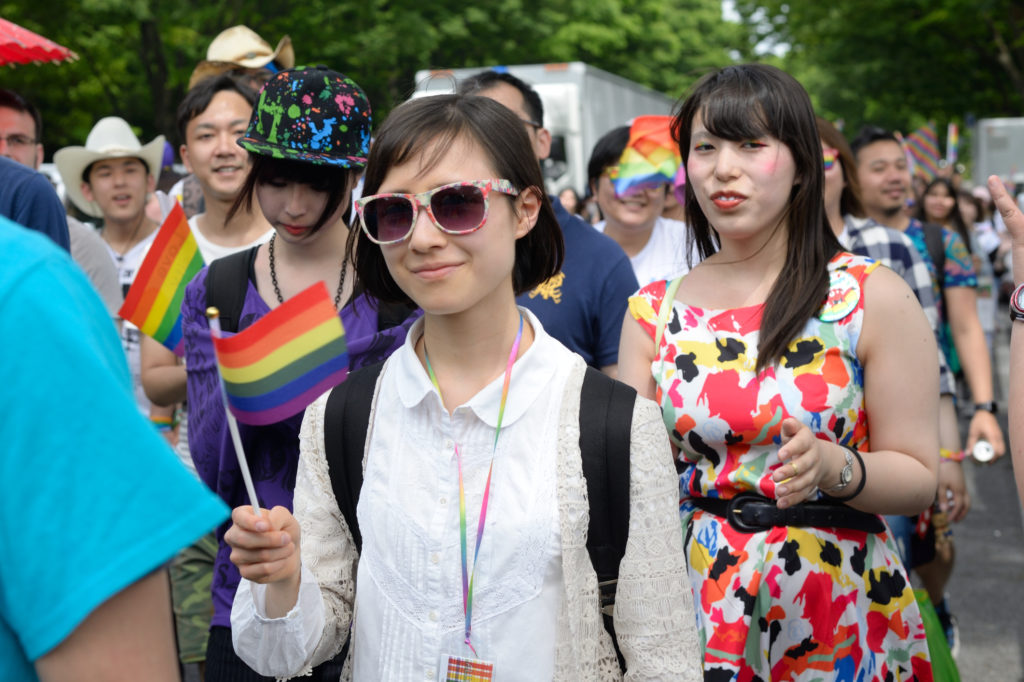
Participants in the Tokyo Rainbow Pride parade march through the streets of Harajuku in May 2016.
A long shot to marriage equality
One thing that has to be made clear is that none of these certificates and systems are in fact equivalent to marriage. Since this is a local ward “endeavor,” rather than an institutionalized system, none of the legal benefits of marriage – including custody of any children, tax deductions, spousal rights – are covered. A representative from Setagaya’s Life and Culture Department confirmed that the partnership oath has “no legal binding,” making this oath and certificate a ward-endorsed, yet symbolic gesture.
The partnership oath has no legal binding, making this oath and certificate a ward-endorsed, yet symbolic gesture.
Unlike Setagaya’s “endeavor,” Shibuya’s partnership certificate system is stipulated in an ordinance. The “Ordinance to Promote a Society Respectful of Sex Equality and Diversity” has an uplifting message, citing the role that Japan’s “tradition of mutual help and history of accepting diverse culture” has played in the country’s development, and how specifically, “Shibuya is a highly tolerant city that accepts a myriad of unique individualities.”

A sample of Shibuya’s Same-sex Partnership Certificate
However, despite clauses stating that the ordinance promotes “elimination of societal prejudice and discrimination against sexual minorities” and that “the ward, ward residents, and business operators may not discriminate in any way against sexual minorities,” there is no outline as to how preventing such discrimination would be enforced, much less how such discrimination would be punished. Any systematic or official recognition of this same-sex partnership is at the discretion of the individual organization or business.
And most notably, whatever recognition and benefits these initiatives and ordinances afford are lost as soon as the certificate bearer leaves the ward. As one transgender friend of mine put it, “What’s the point!?”
As of January 2017, […] Setagaya has granted same-sex certificates to a mere 43 couples, and Shibuya to only 16.
Many same-sex partners seem to be wondering the same thing. As of January 2017, I confirmed with city representatives that Setagaya has granted same-sex certificates to a mere 43 couples, and Shibuya to only 16. Clearly, not a lot of same-sex couples in these two areas of Tokyo are tying the (semi-official, mostly symbolic) knot.
But a catalyst for change and awareness-raising
Still, there are plenty of reasons to get “married” under this system. Making an oath of partnership that is officially – if not legally – recognized by the city government in which you reside can be powerful, both personally and for the future of real marriage equality. Tomohiro Iwabuchi, Director of the Equal Marriage Alliance Japan – an NPO advocating for social and legal recognition of same-sex marriage in Japan – sees these partnership certificates as a big step towards awareness. Iwabuchi explains that, “The fact that same-sex partnership certificates are being officially issued and legislated has had a huge influence on raising awareness of and rousing discussion around the issue of same-sex couples. If similar movements took place around the country in the future, the issue of same-sex couples would gain even more recognition, increasing opportunities for deepening understanding. I think it would further promote discussion on the governmental level, greatly influencing it.”
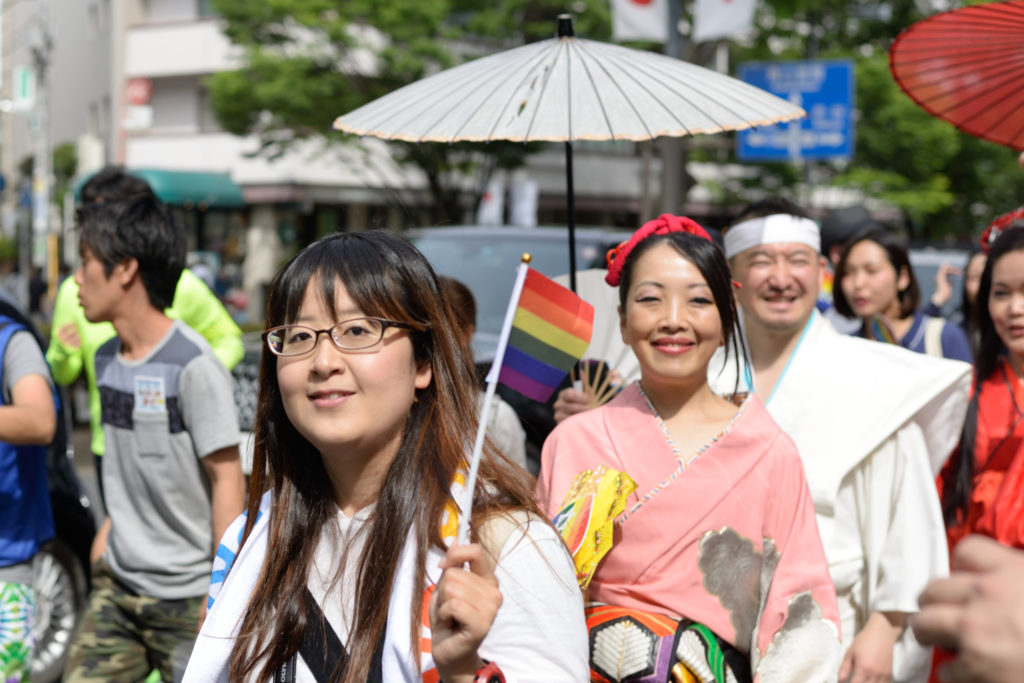
Moving on: More and more people take it to the streets in the annual Tokyo Rainbow Pride parade
Potential benefits
So the more people that are granted these certificates, and the more they attempt to use them in official capacities, the more opportunities for awareness and acceptance may arise. A representative from Airisu, Shibuya’s Sexual Equality Diversity Center, confirmed that Shibuya city housing “has slightly modified their rules to accept same-sex partners (with this certificate) as a family, and they are allowed to apply for family housing.” However, she is not personally aware of any same-sex partners applying or being accepted into such housing.
The fact that same-sex partnership certificates are being officially issued and legislated has had a huge influence on raising awareness of and rousing discussion around the issue of same-sex couples.
She also added that, “We had the opportunity to explain this (same-sex certificate) system to medical associations, real estate agencies, and other organizations in the Shibuya area, and out of that, as well as the city housing, the Worker’s Welfare Bureau also modified their rules to acknowledge (certified) same-sex partners.” The Worker’s Welfare Bureau has a notice on their website stating that in accordance with the Shibuya ordinance, they have updated their rules to accept the “partnership certificate” as proof of marriage.
The Airisu representative also mentioned that various organizations all over Japan have made moves towards accepting same-sex partners as family, such as cell phone companies allowing people living under the same roof to enter their “family plans.” So there is growing, if still very limited, acceptance of same-sex partnership. And though the same-sex certificates seem to have had a slow two years, things are just getting started.
Obtaining your same-sex partnership certificate
Same-sex partnership certificates can be obtained in Japan, regardless of your nationality. The process is not difficult and — good news — you can get “married” for just ¥300. Below is a quick breakdown of the process, but make sure to check with the ward to get the most up-to-date and detailed information.
To apply, you must meet the following criteria:
- Be in a committed same-sex partnership
- Be over 20 years old (both of you)
- You and your partner must both officially reside in Shibuya or Setagaya (or other cities that have introduced the certificates). Foreign residents are also allowed to apply, as long as you are registered as a resident in the ward. You do not have to be registered as living together.
- Both of you must be unmarried and free of any other partnership
- You cannot be next of kin
Same-sex partnership certificates can be obtained in Japan, regardless of your nationality — and cost ¥300.
So you meet the criteria. What’s next? Show up! Shibuya requires that you and your partner show up in person to the Resident Family Registry department of the city hall. Setagaya requires that you call or fax (yes, those still exist here) ahead to make a reservation with their Life and Culture Department. Carry official IDs and follow the instructions.
Depending on the city, you may be requested to submit additional documents, such as a “Voluntary Guardianship Contract” (Shibuya), naming your partner as a voluntary guardian, and a consent contract stating that you are in a serious, loving and trusting relationship, and that you will share in the responsibilities of sharing your life together. These contracts cost extra money, but the “marriage” certificate itself is just ¥300! Expect a few days before submitting your application and documents prior to receiving the actual certificate. And if you do — share your story with us!


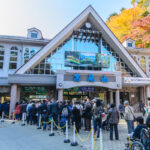





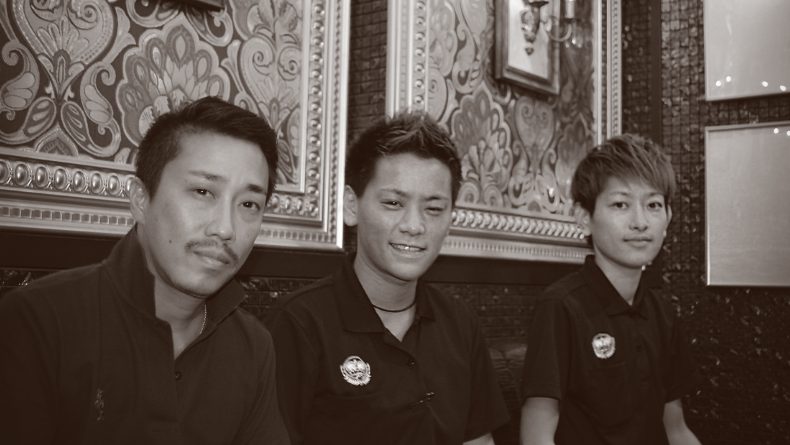
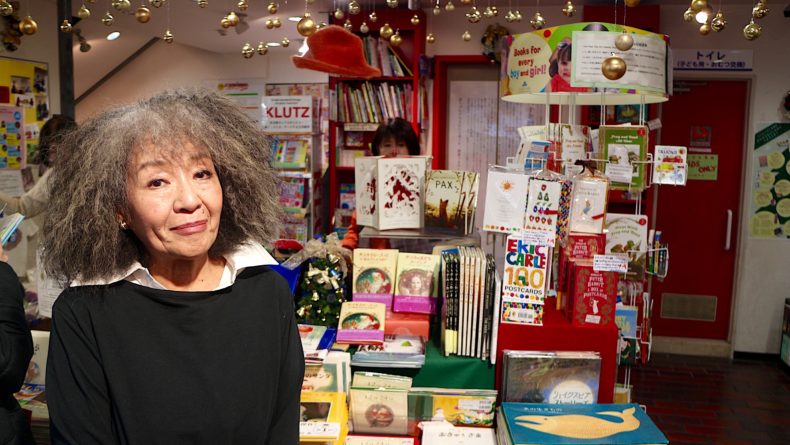


Leave a Reply